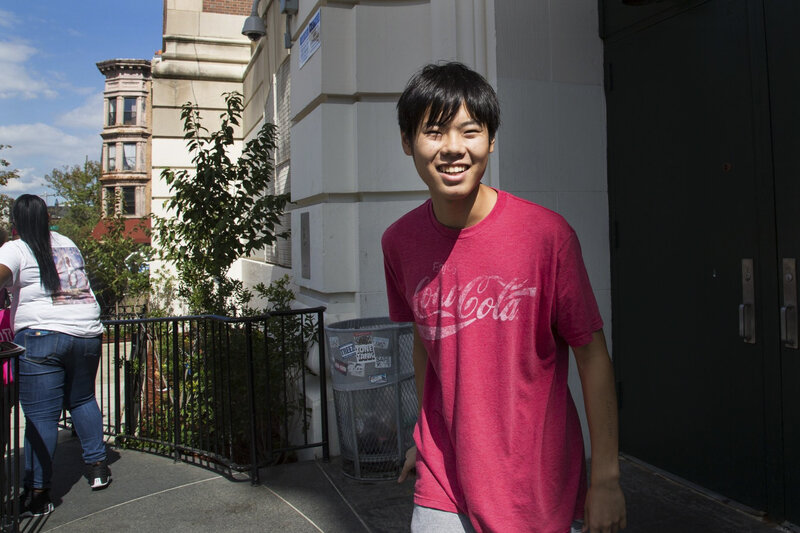Getting Students With Autism Through High School, To College And Beyond

Colin Ozeki, a high school student with autism, is on track to graduate this year from Millennium Brooklyn High School with an advanced diploma.
Amy Pearl/WNYC
Colin Ozeki, 16, doesn't like to sugarcoat how autism spectrum disorder has affected his interactions with others, his emotions and his own self-confidence. He sees it as an issue to confront, something about himself to work on and improve in order to fully participate in life around him.
He appreciates the adage, "It's a difference, not a disability." But he disagrees with it when it comes to himself.
"I don't think I would be at this place that I'm at right now if it weren't for people acknowledging the idea that I had some kind of problem per se," says Colin. "I might have just been this confused person forever, and somewhat underdeveloped."
We know a lot more about children with autism spectrum disorders than we did just a decade ago, but nationwide students with autism are enrolling in college in relatively low numbers.
Colin, now a senior at Millennium Brooklyn High School, has been part of a program in the New York City schools aiming to change that. It's called ASD Nest (ASD refers to students with autism spectrum disorder) and he's been with it his entire school career.
A key underlying philosophy of the program is that education — the classroom — provides the most effective treatment for autism. The program, run jointly by the city's Department of Education and NYU Nest Support Project, places students with autism who are capable of doing grade-level work in classrooms with their non-disabled peers.
The program came about in 2003 in response to poor academic outcomes among students with autism, including those like Colin, who were academically strong. Very Getting Students With Autism Through High School, To College And Beyond : NPR Ed : NPR:
